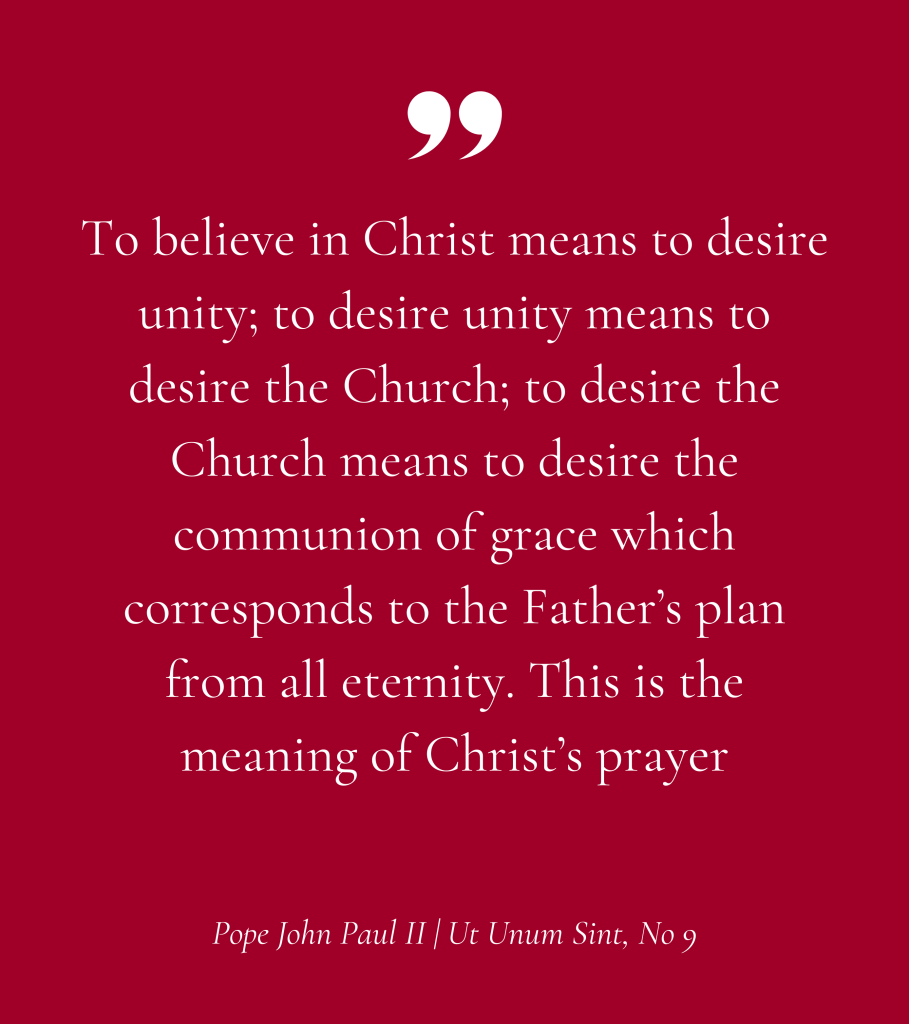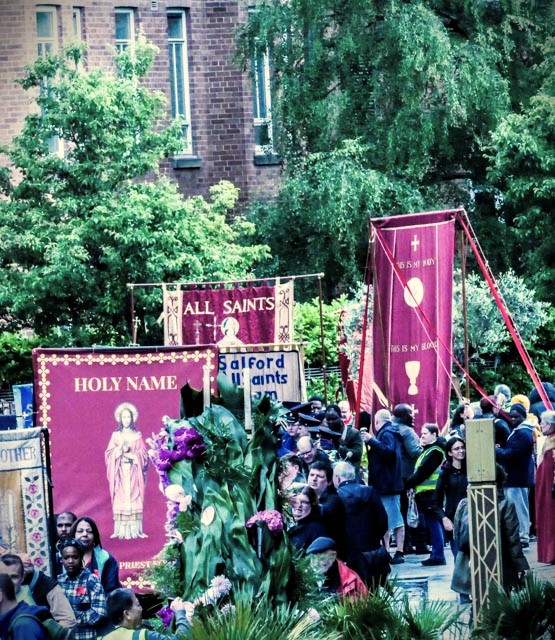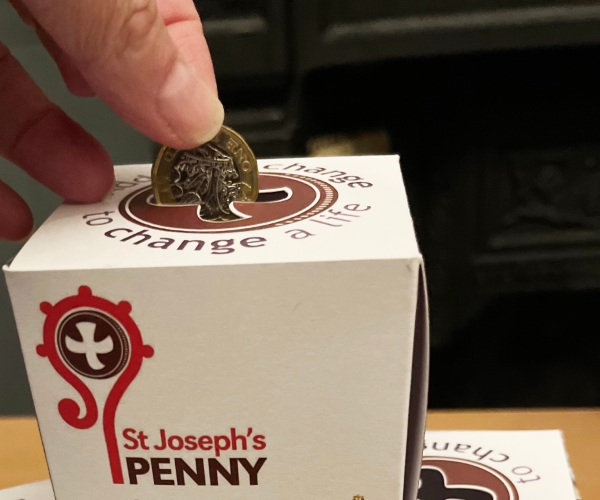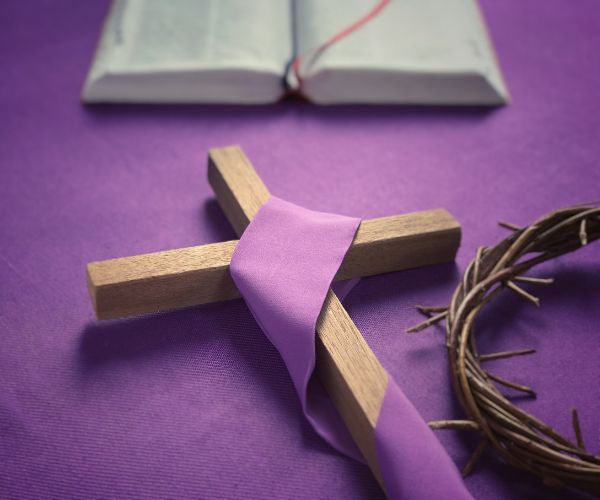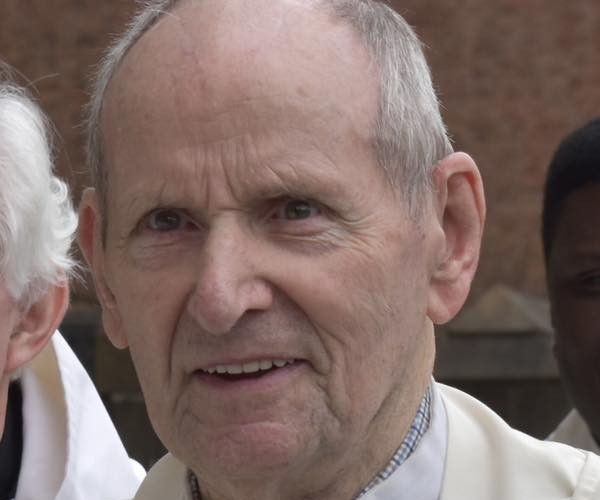
Ecumenism: Unity and Mission
Saturday 15th February 2025This week, we are once again invited to reflect on our relationship with pilgrims from other faiths and denominations as we continue to celebrate the Jubilee for Interfaith and Ecumenism.
We are delighted to welcome back our Episcopal Vicar for Dialogue, Fr Paul Cannon, as he explores how Christian unity is a core and central aspect to the mission Christ entrusted to us:
Why is ecumenism so important in the life of the Church?
In St John’s Gospel, in the section of the Gospel commonly called ‘the priestly prayer of Jesus’, we read:
“May they all be one. Father, may they be one in us, as you are in me and I am in you, so that the world may believe it was you who sent me. (The Gospel of St John 17: 21, Jerusalem Bible.)
Unity is certainly what Jesus desired. Christian unity is an essential condition, if the world is to believe. That is why the divisions of Christians are a serious scandal and a stumbling block for many non-Christians.
The Second Vatican Council (1962-1965) addresses this at the very beginning of the Decree on Ecumenism: “certainly, such divisions openly contradicts the will of Christ, scandalise the world and damages that most holy cause, the preaching of the Gospel to every creature”.
Because of this Vatican Council document, Pope John Paul II worked tirelessly for the unity of all Christians. He said:
Ecumenism must be a part of the Church’s mission. Unity and Mission cannot be separated. Again emphasising that Jesus desired unity at the time immediately before his ascension into heaven, when Jesus instructed his apostles and disciples (and therefore us present day disciples) in Matthew 28:20: “Go, therefore, make disciples of all the nations; baptise them in the name of the Father and of the Son and of the Holy Spirit, and teach them to observe all the commands I gave you. And know that I am with you always; yes, to the end of time.” (Matthew 28: 19-20. The Jerusalem Bible)
According to John Paul II, “the entire life of Christians is marked by a concern for ecumenism”(Ut Unum Sint no 15). We are all under an obligation to help bring about unity. Universally, the Catholic Church has the Pontifical Council for promoting Christian Unity.
Living in Unity
What can we do individually or as a parish? Well, prayer is an important action in helping to further the movement of Unity. Pray that all Christians will recognise the different traditions within the Christian Church.
The Week of Prayer for Christian Unity, which takes place every year from the 18th – 25th January, is an opportunity to gather with members of non-Catholic churches, and in a divided world, is a sign of our intentions to respect and give due dignity to our non-Catholic sisters and brothers. Next January, try to find out where in your home area are the churches holding that ecumenical prayer service and try to attend. Try to take part in walks of witness, which often happen in towns and cities on Good Friday, or join this year’s Manchester and Salford Whit Walk, which takes place on Monday 26th May.
In many places, the local churches come together with representation from the various churches. Very often the group is called ‘Churches together’ (often adding the name of the town to the groups title).
Again, you could ask at your church whether or not this exists, and if so, does our church have a representative on it, and if there is no representative, your offering to be a representative would be an important action in furthering the mission of Christian Unity.
After prayer comes dialogue. Dialogue is not simply an exchange of ideas, in many ways its an exchange of gifts – the different gift of faith that is shared. Ecumenical dialogue provides us with the opportunity to learn more about what we hold in common, and not to always dwell on what divides us.
A genuine aim to further unity will lead us to the churches cooperating with each other. We all pray the Lord’s prayer (with slight variations in some of the words that we use). We all read the same scriptures. We must be credible witnesses of hope and unity. If we do not embrace dialogue, we risk the danger of only focussing on what keeps us apart.
Faith is not only a personal gift but something to be shared with others. We have made much progress on our ecumenical pilgrimage. In my lifetime, I feel that the different Christian Churches have reflected on their practices in the past.
After reading this reflection, why not have a quiet moment and pray the prayer that we all have in common, the Lord’s Prayer:
Our Father, who art in heaven, hallowed be thy name; thy kingdom come, thy will be done on earth as it is in heaven. Give us this day our daily bread, and forgive us our trespasses, as we forgive those who trespass against us; and lead us not into temptation, but deliver us from evil. Amen.
Read more
For more resources to celebrate our Jubilee for Interfaith and Ecumenism, please explore the links below:
Walking Together in Peace and Harmony
Or click here to find out more about our Jubilee of Jubilees series!
Tagged | Interfaith | Jubilee 2025 | Jubilee of Jubilees

